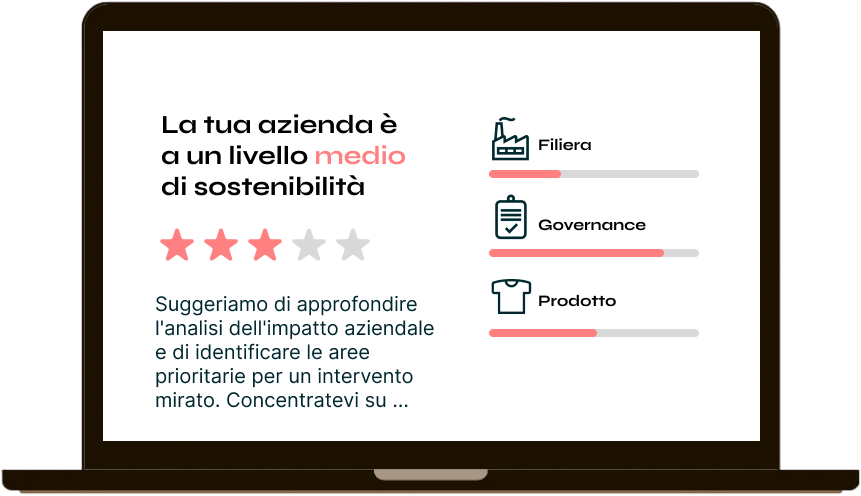The role of the ISO 20121 Standard in limiting the environmental impact of fashion events
The organization and management of fashion events can have a negative impact on the environment and host communities.
According to the Zero To Market report, published by ORDRE in collaboration with Carbon Trust, the fashion industry contributes significantly to air pollution, especially during fashion weeks held in world capitals such as Milan, London, Paris and New York. According to the reported analysis, visitor and brand travel alone during this period generates approximately 241,000 tonnes of CO₂. This figure, however, does not include the other aspects of fashion events, such as the energy consumption of venues, specially created fittings, catering services and waste generated during each individual event. Together, these factors further increase the environmental impact and constitute a significant burden on local communities.
Faced with this challenge, one approach that is gaining increasing acceptance is the adoption of the ISO 21021 standard, a management system for sustainable events.
This standard, developed by the international community, is designed to help organizations integrate sustainability into their processes, with the aim of reducing environmental impact and promoting social responsibility.
ISO 21021 standard: characteristics and purpose
The ISO 20121 standard, introduced globally in 2012, promotes sustainability in the organization and management of events. This standard, which is an evolution of the previous BS8901 (British Standard for Sustainable Events Management), has become an essential reference point for organizations aspiring to implement a sustainable approach to event management.
The main objectives of the ISO 20121 standard are:
- to establish, implement or improve a sustainable management system for all types of events and parties involved in the process
- to ensure compliance with a sustainable development policy
In addition, voluntary compliance with ISO 20121 can be demonstrated through several levels:
- first part (self-determination and self-declaration)
- second part (confirmation of compliance by parties who have an interest in the organization, such as customers, or by others on their behalf)
- independent third party (verification by a certification body)
The standard is based on three fundamental pillars: economic, environmental and social sustainability. These principles guide sustainable event planning and management, reducing environmental impact, optimizing resource use, promoting social inclusion and equity, and building strong relationships with local communities.
Benefits and advantages of the ISO 20121 standard
The broad scope of applicability of the ISO 20121 standard includes all types of organizations, regardless of the size or nature of the events organized. It can apply to a single event, a series of events, specialized event organizations, service providers, and even event venues.
Management takes place through a system known as the Deming cycle, which comprises four distinct phases - Plan, Do, Check and Act - cyclically sequenced until productivity improvement is achieved.
For such a management system to be successful, it must be flexible and integrated within the event management process and not merely considered as a component to be added. For maximum effectiveness, its impact should extend throughout the supply chain and involve all relevant stakeholders. In this way, the organization can reap numerous benefits.
Adherence to the ISO 20121 standard can not only improve the organization's image and reputation, but also increase operational efficiency, reduce costs and stimulate innovation. Finally, it can facilitate access to new market opportunities, attract customers and sponsors who are more aware and sensitive to sustainability issues.
Gucci's commitment to ISO 20121 certification
Among the fashion brands that have decided to adopt this standard, Gucci certainly stands out. The Italian luxury brand, belonging to the French Kering group, was the first fashion brand to certify ISO 20121 all of its fashion shows, starting with the SS20 show held in 2019.
In line with this standard, the brand measures and reduces the negative environmental impacts of its fashion shows and optimizes processes to make them more environmentally efficient. This includes choosing sustainable materials, using reusable, recyclable or rentable materials, using local caterers, donating surplus food, increasing the use of green electricity and LED lighting, and choosing sustainable transport. An external body verifies that the management system meets the requirements of the certification standard.
In addition, for the 2020 fashion shows, Gucci used around 80% recycled or rented production materials, adopted 100% plastic-free catering and committed to planting a tree for each participant to compensate for the emissions they failed to reduce, resulting in the planting of around 6000 trees.
Conclusions
The environmental and ethical challenges of the fashion world go beyond the production of clothing and accessories.
The fashion industry has a significant opportunity to mitigate the environmental impact of its events through the adoption of the ISO 21021 standard. This tool provides an effective pathway to integrate sustainability into every stage of events, contributing to greater environmental and social responsibility.
Brands that have adopted this standard are already demonstrating how it can not only lead to a reduction in environmental impact, but also improve brand reputation and create new market opportunities.
However, to ensure the success of a management system, it must be flexibly integrated into the event management process, extending its impact along the entire supply chain and involving all relevant stakeholders.
Get articles like this and the latest updates on sustainable fashion automatically!
